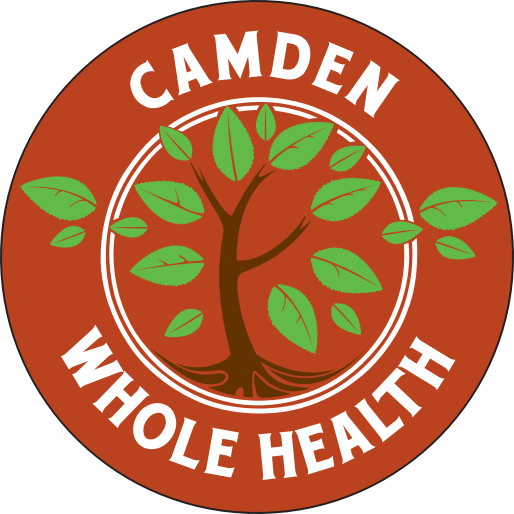This is offered as our way of helping to keep our community safer as there is no other resource for asymptomatic individuals who want testing. In addition, the Governor has mandated that those visiting our state have the option to be tested instead of a 14-day quarantine but other local test sites are not yet operational.
Until state-funded community-wide asymptomatic testing is available locally, we will continue testing people who are not our patients. We are doing our best to keep costs down in an effort to test as many people as want to be tested.
There are many different scenarios when deciding if, when and what type of testing people need. We offer nasal swab, saliva, antibody blood draw, antibody finger stick and stool testing.
To decide if you have been exposed and are actively shedding virus and could be contagious, a nasal swab is ideal. Keep in mind, however, that a person could have SARS-CoV-2 and still not have enough viral shedding to test positive YET. Nasal swab testing is ideally done the day prior to symptoms or at the peak of symptoms and may remain positive (except for unanticipated testing error) until 2 weeks after symptom onset. Some people choose to combine nasal swab sooner and antibody testing later.
Stool testing picks up active viral shedding as well but may remain positive for up to 5 weeks after nasal swab testing has become negative. This helps one understand if symptoms they had a month ago were from the novel coronavirus.
Saliva testing, like nasal swab, identifies active viral shedding as well, but there needs to be quite a bit of DNA in the sample to be positive and therefore is ideal during peak of symptoms when someone wants to do testing for the novel coronavirus at home instead of coming to the office. This is not a good screening test for tourists.
We offer two types of antibody testing. One, by blood draw, maybe more accurate for a person who wants to know if the symptoms they had a while ago were from SARS-CoV-2 as it will be more concentrated in the plasma from a blood draw. The drawback is that the CDC recommends using “major labs” like Quest that we use if one is compelled to do antibody testing which they still do not recommend. However, the Quest test may have up to a 26% false-negative rate. This means that if it is positive, it is very likely accurate (except for very rare lab contamination or error) but if it is negative, there is a 26% chance that the person’s symptoms were from the novel coronavirus but the test wrongly indicated that they were not. Another drawback is that Quest does not offer IgM testing which indicates if a person was recently infected and is still likely to be contagious. They only offer IgG antibody testing which indicates that a person was infected sometime in the past. Another plus of this test is that it does give quantitative information if a person is trying to watch if their titer (levels of antibodies) is going up or down.
FINGER STICK IGM-IGG ANTIBODY TEST ($75)
A more sensitive and specific antibody test that is taken by a simple finger stick is available as well with a 15-minute turnaround time. This test has been studied in China to be much more accurate, is simpler to do with a faster turnaround time and is much less expensive. This one tests both antibodies: IgM and IgG. It does not give a quantitative amount of antibody if someone is trying to see their titers over time, however.
No test can determine if a person has COVID-19 immunity at this time and should not be used to give us a false sense of security that we are safe from contracting it. We can also contract it soon after being tested and, for up to 14 days be spreading it to others unknowingly.
All antibody tests have false negative rates that concern doctors and the CDC. Ideally, people would have both a properly administered, transported and analyzed nasopharyngeal swab and an antibody test regularly to assess if they are contagious. Since this is not feasible, please continue to do all of the following: cover your mouth and nose in public and when visitors come to your home, maintain at least 6 feet between you and others, wash your hands in very warm/hot water for at least 20 seconds, sanitize your purchases then wash your hands after.
HELP DETERMINING WHICH TEST TO HAVE:
If you need the doctor’s help to decide which test to have done, schedule with Dr. Deb or Dr. Barb or ask your own PCP.
- If you have been seen since May 1st, schedule a 15-minute check-in (approximately $60 if we are not in-network with your insurance provider or haven’t met deductible/co-insurance).
- If you are an existing patient but have not been seen since May 1st, please schedule a 30-minute check-in ($100-125 if we are not in-network with your insurance provider or haven’t met deductible/co-insurance).
- For local community members who know what type of testing they want, but who are not patients, you do not need a check-in with a doctor, just schedule your test with our staff. If you don’t know what type of test you want, please schedule a 30-minute check-in with a doctor ($125) to establish a doctor:patient relationship, sign all consents prior to the telehealth visit.
- People visiting our area who wish to not quarantine for the full 14-days, you must use the SARS-Cov-2 nasal swab test. You will be asked to sign a consent and agreement that you will remain in isolation until your result is back (usually within 3 days). That means you will not go to stores, gas stations, etc., until after your lab results are back.
